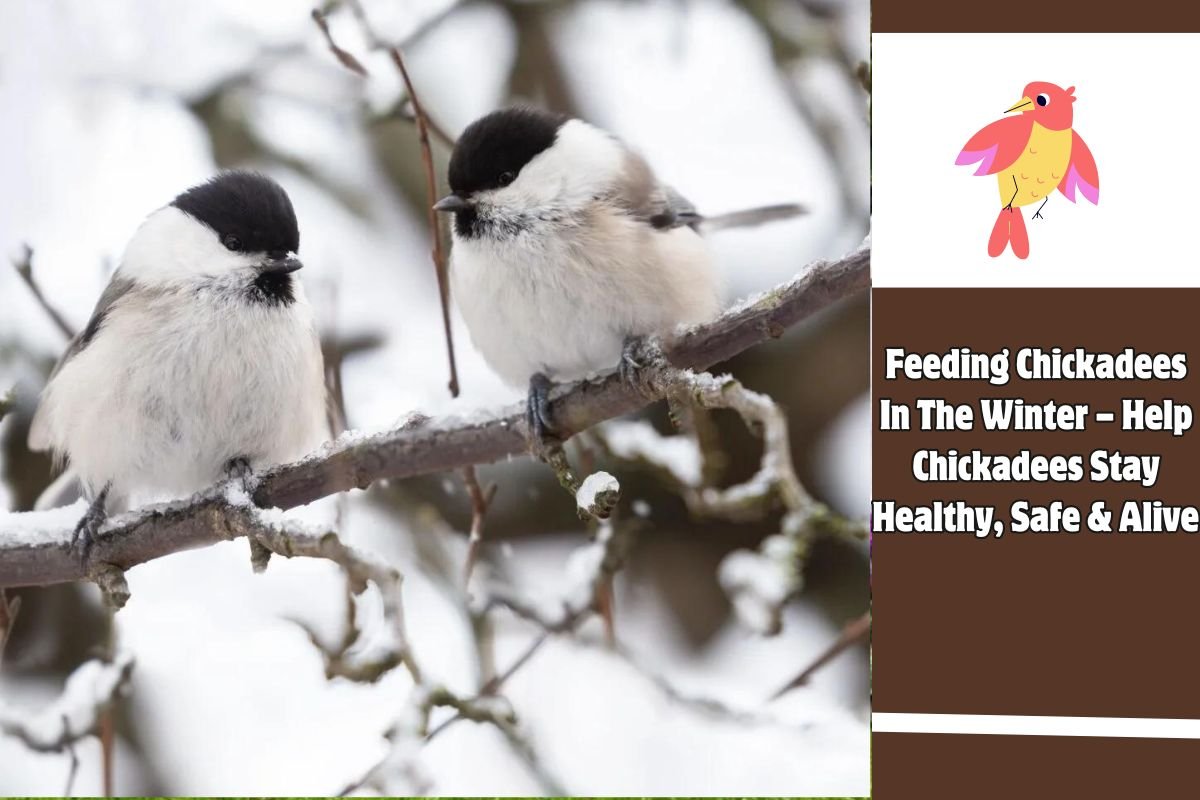Feeding Chickadees In The Winter – Help Chickadees Stay Healthy, Safe & Alive : The cherished chickadee is one bird that could always use a little assistance getting through the winter, and providing them with food that will keep them safe, warm, and alive is one of the greatest ways to do exactly that.
Not only are chickadees among the cutest and tiniest birds on the planet, but they are also among the best to have in your backyard. particularly in terms of helping gardeners. Simply said, chickadees are insect-eating machines. They can eat twice their body weight in a single week, that’s how much!
Feeding Chickadees In The Winter – Help Chickadees Stay Healthy, Safe & Alive
For gardeners, that can be quite beneficial in the growing season. Particularly when you consider that some of the plants’ favourite foods are caterpillars, slugs, snails, and aphids that attack them. Better yet, they are excellent at controlling pest populations since they also consume bug eggs and larvae.
Chickadees In The Winter – Feeding Chickadees In The Winter
Unfortunately, when the cold, snow, and ice approach, chickadees do not migrate to warmer regions. And as the weather changes, they frequently find themselves scurrying for food to survive.
Birds with lots of energy are chickadees. They use a great deal of energy flying around in the spring, summer and autumn in search of insects, nuts and berries. Of course, refuelling is rarely a problem when there are so many food sources accessible.
However, despite your assumption that because they aren’t as active in the winter, their needs for food and energy would decrease, the reverse is really true. In fact, chickadees use the extra energy they expend on chilly evenings to stay warm and avoid freezing.
The Best Foods For Chickadees
Cracked Corn: A fantastic addition to winter bird feeders for chickadees, cracked corn is high in fibre and carbohydrates. It is also simple and problem-free for them to consume because it has already been cracked. The best part is that cracked corn is among the least expensive bird feeding options.
Sunflower Seeds: A chickadee’s keen beak can easily cut through a sunflower seed’s outer shell. Furthermore, sunflower seeds are not only very nutrient-dense but also simple for kids to eat.
ALSO SEE
Beyond Seeds & Nuts
Suet Blocks – The best way to provide chickadees with a supplemental high fat and calorie food source is with suet. Suet is rendered fat that can also contain peanuts, seeds, berries and nuts. And chickadees flock to them!
Suet blocks are readily available for purchase, or they can be simply made at home with peanut butter, lard, or grease. In actuality, they are of great assistance to almost all overwintering birds. Birds such as wrens, blue jays, cardinals, finches, and chickadees will also eat from them. To learn more about creating your own at home.
Winter Water For Chickadees – Feeding Chickadees In The Winter
Not to mention, chickadees also require water to survive. Water helps the birds’ metabolism and keeps them hydrated. Chickadees will “drink” from the snow and ice by breaking off pieces and consuming the liquid to stay hydrated.
That’s why placing a couple bowls of water under or next to your feeders will greatly benefit them, even if they freeze. Water is just as vital as food. Don’t forget it!
I hope this helps the chickadees survive this winter in your property. And even better, they will grow robust and healthy come springtime to help manage all those pests!
